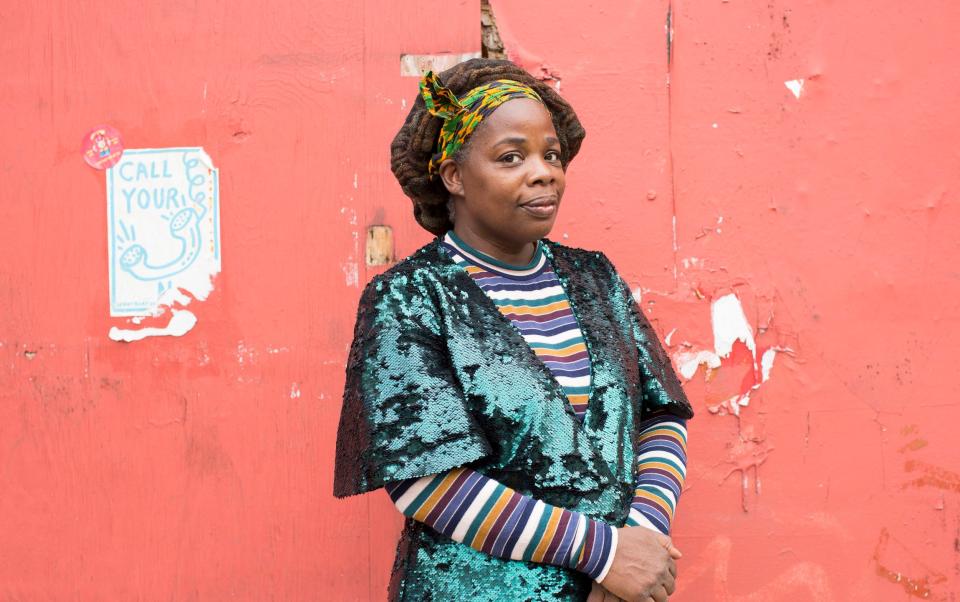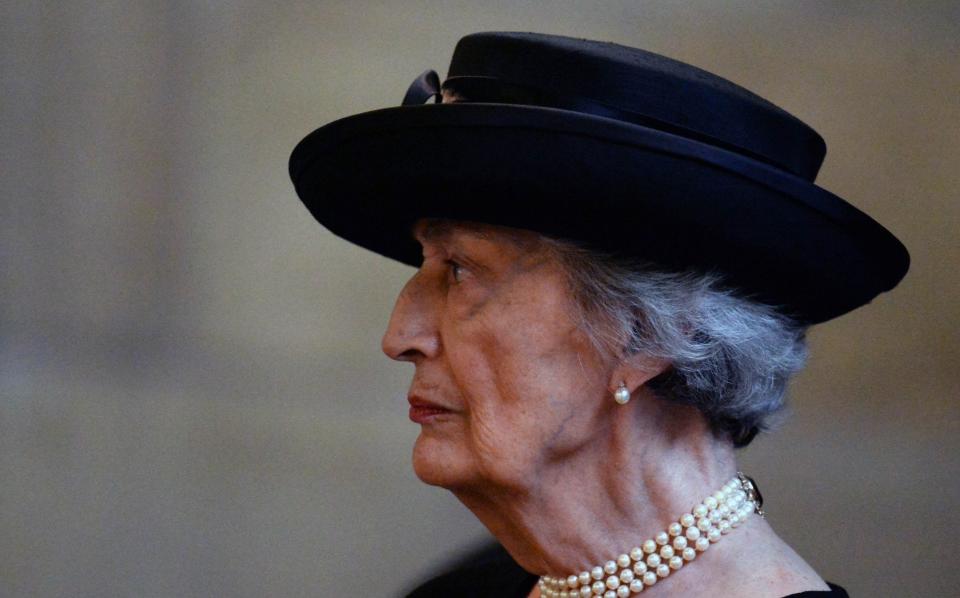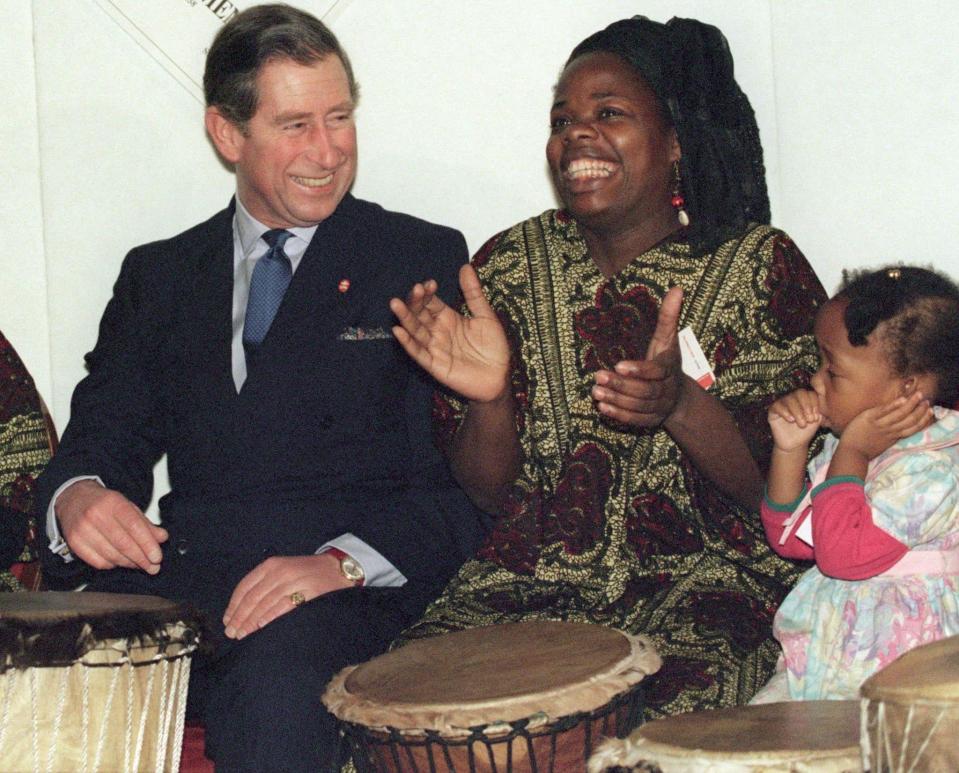Ngozi Fulani: The activist proud of her African roots who found herself at the centre of a royal race storm

When Ngozi Fulani walked into Buckingham Palace on Tuesday, she joined a formidable corps of women led by the Queen Consort, gathering to raise awareness about violence against women.
When she walked out, via an “interrogation” she would rather not have had, she found herself in unexpected possession of the power to shake the palace to its core.
Her account of her conversation with Lady Susan Hussey, in which she was repeatedly asked where she was “really” from, has reverberated around the world.
The international outrage has been deeply wounding to an institution already accused of racism by two of its own, the Duke and Duchess of Sussex, and personally life-changing for the 83-year-old courtier who has resigned in contrition.
The ball, it seems, is now firmly in Ms Fulani’s court.
An activist who has previously said her identity and connection with Africa is her “lifelong story”, there could be no-one better placed to bridge the gulf in understanding between those who consider “where are you really from” the most innocent of small talk to a conversational gambit so offensive it is a “form of abuse”.
In different contexts, she has spoken proudly of her background, using it to help victims of domestic and sexual abuse specifically from African and Caribbean communities.
She founded charity Sistah Space in 2015, with the aim of “ensuring that cultural factors are not only considered but understood”, as “experts on the intersectionality of racism and gender-based violence”.

One of seven children born to parents who emigrated from the Caribbean, Ms Fulani – born Marlene Headley – were the only black family on their Kilburn road and made “very aware” that “even though we were born here, we were not welcome”.
She has described how finding an African dance group was the “day my life changed”.
“A pivotal moment, because it was a connection with Africa and put me in touch with Africans from the continent,” she wrote on the Future Hackney website, which records the life experiences of locals to document social change.
“To hear Africans with strong accents, learn about the food and the drumming touched my heart and took me to a place I had never been.
“My connection with Africa became my lifelong story.”
Since becoming a dance teacher, she said, Ms Fulani has taken students and her own children to Africa to learn about their culture and roots aside from the stereotypes seen from afar.
Ms Fulani went on to achieve a masters degree in African Studies from SOAS, calling the experience of being taught the topic by white middle-class lecturers a “colonial environment” that was “at times… traumatic”.
In a 2020 interview with the Guardian, Ms Fulani highlighted the specific need for better representation of African and Caribbean-heritage victims of domestic violence.
Describing their specific barriers to reaching help, she detailed an unwillingness to disclose abuse to police for fear of “what happens to black men in police custody”, injuries presenting differently on non-Caucasian skin, and the stereotype of “tough Caribbean women”.
The profile described her as widowed with four children and three grandchildren, with listed interests as “books, reggae music, African dance, drumming and singing, African and Caribbean storytelling”.
Since the account of her Buckingham Palace experience went viral, Ms Fulani’s story has become the stuff of deep division.
On the one hand are those who have experienced similar conversations throughout their lives and can tell when a question is being asked with an agenda.

On the other, tearing through social media and encapsulated by Nigel Farage’s GB News invective accusing her of being “an anti-Royal, anti-British Marxist”, those who see a conflict between honouring her heritage but declining to volunteer it during palace small talk.
“How is it a racist outrage to ask someone in African dress where they are from?” Farage said.
Others have republished tweets in which Ms Fulani’s Sistah Space shows support for the Duchess of Sussex, declaring in March 2021 that “according to clear definition, it seems Meghan is a survivor of DV [domestic violence] from her in-laws”.
There are inevitable – and unsubstantiated – mutterings from Lady Hussey’s supporters that the conversation was a “set up”, designed to bring the topic of institutional racism to the heart of the palace.
The palace now awaits Ms Fulani’s verdict on whether she will come in to discuss what happened; on whether she will accept Lady Hussey’s apology; and even if she feels able to put her charity’s work training people in “cultural competency” into action within its walls.
Aides on Friday refused to disclose any details of their conversations so far, confirming only that they had finally made personal contact with Ms Fulani and hoped to hear more in the future.
Those who support her will point out that she should not have to be the one to do the educating.
‘Instead of stepping down, Hussey should be encouraged to step up’
Mandu Reid, leader of the Women’s Equality Party who was part of the conversation and confirmed she “witnessed racist remarks from a member of the royal household”, has said: “The funny thing is, neither Ngozi nor I wanted Hussey to receive the grand order of the boot.”
Writing in the Guardian, she noted: “Instead of stepping down, Hussey should be encouraged to step up, along with senior members of the Royal household.
“This is much bigger than one individual: blaming Hussey risks minimising and distracting from the depth and breadth of racism that is enshrined in an institution that carries the heritage of empire, slavery and inequality (we are their subjects, after all).”
The media team at Ms Fulani’s charity Sistah Space did not return requests for comment on Friday.
A royal source, confirming Lady Hussey would like to apologise in person, has said only that “we hope we can orchestrate a situation where everyone gets around a table and has open dialogue and that lessons are learned in a spirit of co-operation”.
Sistah Space itself runs training for institutions about “cultural competency and best practice”.
As Mandu Reid puts it: “Wouldn’t it be something if Buckingham Palace asked for their help?”

 Yahoo Movies
Yahoo Movies 